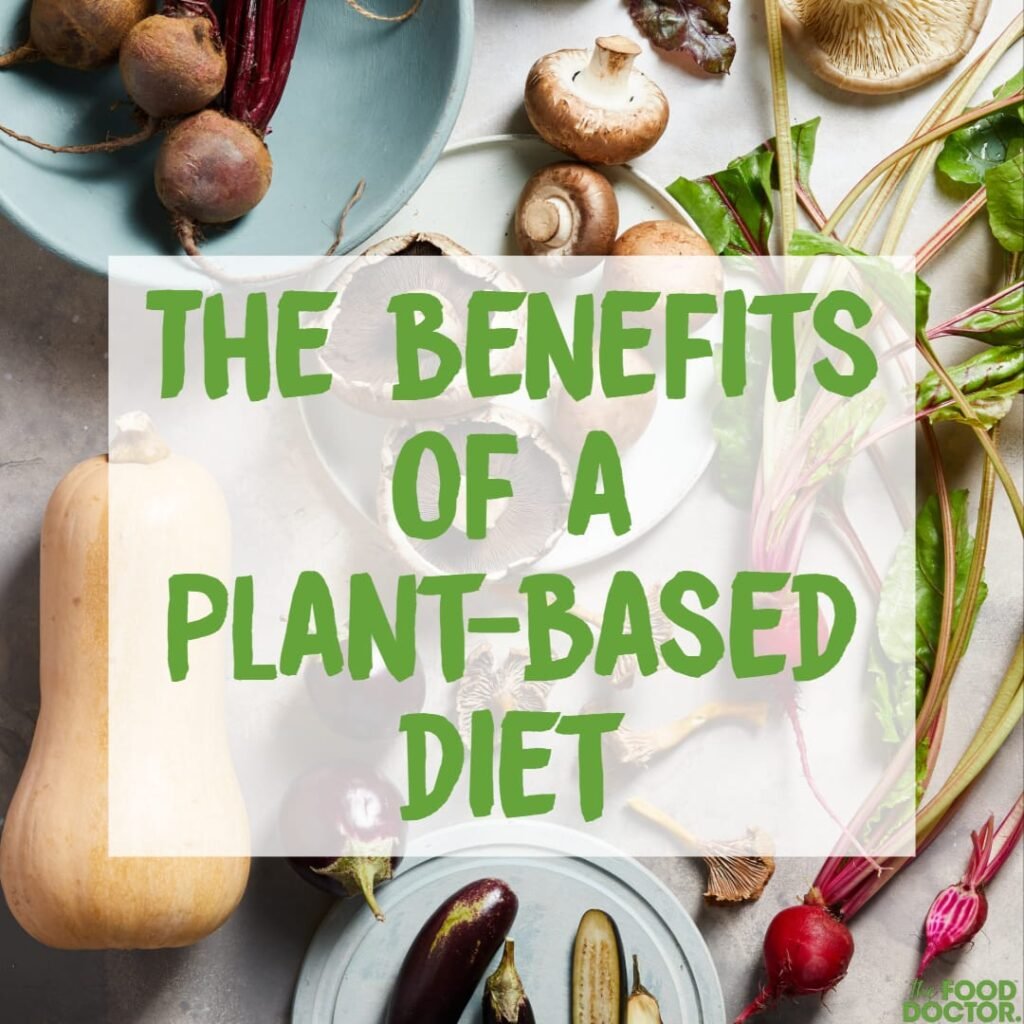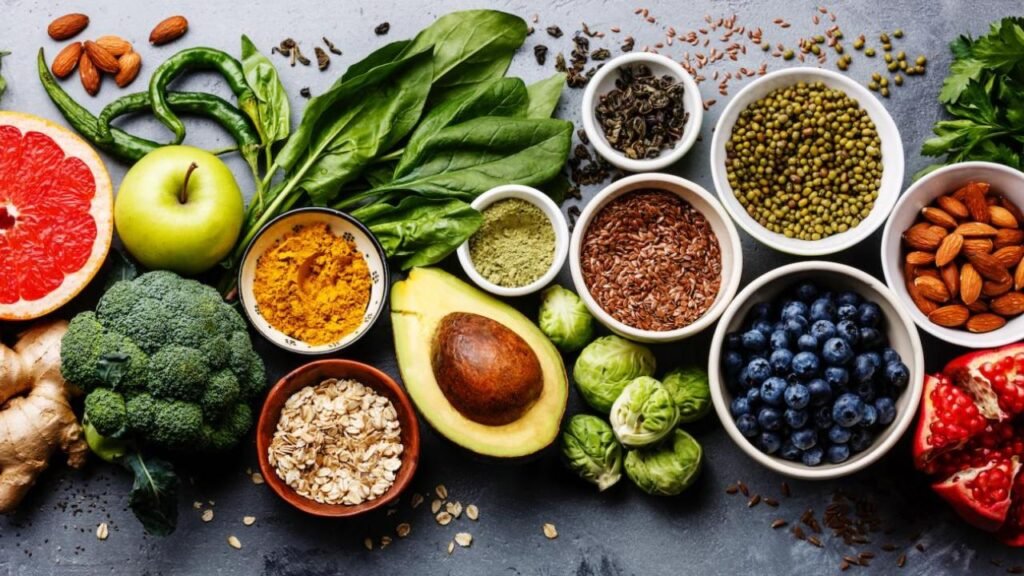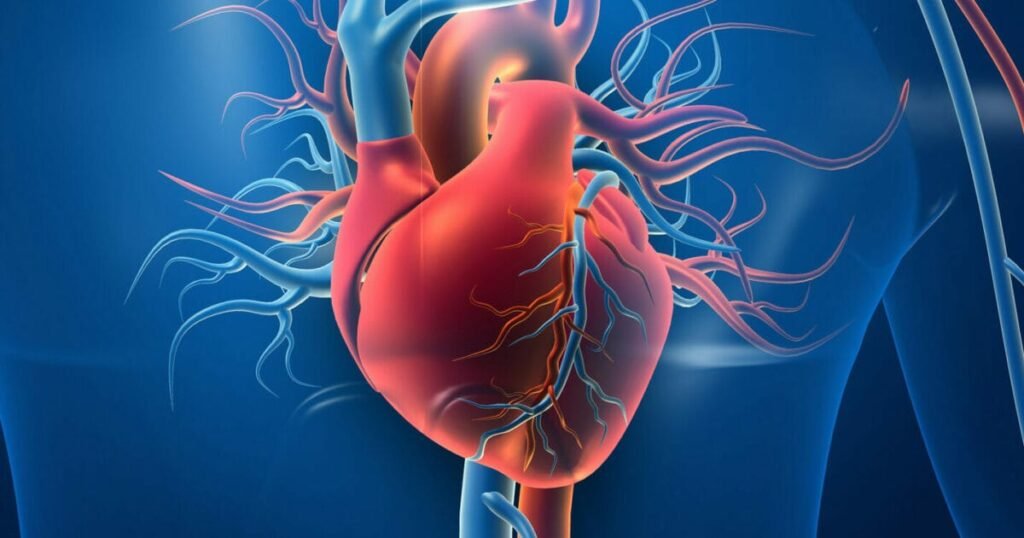The Benefits of a Plant-Based Diet: A Comprehensive Guide-In recent years, the popularity of plant-based diets has skyrocketed. From celebrities to athletes and everyday individuals, more people are embracing a diet centered around fruits, vegetables, grains, nuts, and legumes. There’s a good reason for this shift: the benefits of a plant-based diet are numerous, spanning physical health, mental well-being, environmental sustainability, and ethical considerations. In this article, we’ll delve into the various advantages of adopting a plant-based lifestyle, backed by research and real-world examples.

Table of Contents:-
- **Understanding a Plant-Based Diet**
- **Health Benefits of a Plant-Based Diet**
– Cardiovascular Health
– Weight Management
– Improved Digestion and Gut Health
– Reduced Cancer Risk
– Longevity and Aging
- **Environmental Benefits**
– Lower Carbon Footprint
– Conservation of Water Resources
– Reduction in Deforestation
- **Mental Health and Well-being**
– Improved Mood and Energy Levels
– Decreased Risk of Depression and Anxiety
- **Economic Benefits**
- **Challenges and Considerations**
- **How to Start a Plant-Based Diet**
- **Conclusion**
1. Understanding a Plant-Based Diet

A plant-based diet emphasises the consumption of whole, minimally processed plant foods while limiting or eliminating animal products like meat, dairy, and eggs. Although it can be flexible—allowing occasional animal products in some forms (like a vegetarian or pescatarian diet)—the focus is on plants. The goal is to consume foods that provide all the essential nutrients our bodies need through natural, plant-based sources.
The plant-based diet is not necessarily the same as veganism, which often extends to lifestyle choices (such as avoiding animal-derived products like leather). Instead, it emphasises health and sustainability, focusing on a dietary pattern rather than a complete lifestyle change.
2. Health Benefits of a Plant-Based Diet
Cardiovascular Health

One of the most researched benefits of a plant-based diet is its positive impact on heart health. Studies consistently show that those who eat predominantly plant-based diets have lower cholesterol levels, lower blood pressure, and reduced risks of heart disease. Plant-based foods are naturally low in saturated fats, cholesterol, and trans fats, which are major contributors to heart disease.
Research Findings

-A study published in the *Journal of the American Heart Association* found that individuals who followed a plant-based diet had a 16% lower risk of developing cardiovascular disease.
– Another study in *The Lancet* revealed that diets rich in fruits, vegetables, and whole grains could reduce the risk of coronary artery disease by as much as 30%.
Weight Management

Plant-based diets are generally higher in fibre and lower in calorie density compared to diets that include animal products, making it easier to manage weight. The high fibre content in whole plant foods keeps you full longer, helping to reduce overeating and control hunger.
**Real-Life Example**: Many people have found that shifting to a plant-based diet leads to gradual and sustainable weight loss without feeling deprived. For instance, a study from *Harvard T.H. Chan School of Public Health* noted that those who adopted a plant-based diet experienced significant weight loss over time compared to those who continued to consume animal products.
Improved Digestion and Gut Health

Whole plant foods, especially fruits, vegetables, and whole grains, are packed with fibre. Fibre is essential for digestive health because it supports healthy bowel movements and feeds beneficial gut bacteria, which play a vital role in immune function, mood regulation, and nutrient absorption.
**Research Highlight**: A study published in *Nutrients* showed that plant-based diets positively influence gut microbiota composition, increasing the prevalence of beneficial bacteria like Bifidobacterium and Lactobacillus, which contribute to a balanced gut.
Reduced Cancer Risk

Plant-based diets are rich in antioxidants, vitamins, and minerals, all of which help combat inflammation and oxidative stress—key contributors to cancer development. By focusing on whole, plant-based foods, individuals can reduce their risk of various types of cancer.
**Notable Findings**: According to the *World Health Organization (WHO)*, diets high in processed meats have been linked to increased cancer risk, particularly colorectal cancer. In contrast, diets high in fruits, vegetables, and fiber-rich foods are associated with lower cancer risk.
Longevity and Aging

Studies have suggested that those following plant-based diets may enjoy a longer lifespan and a reduced risk of age-related diseases. Plant foods contain antioxidants, polyphenols, and other phytochemicals that protect cells from damage, slow down ageing, and reduce the risk of chronic diseases.
**Insight**: In the famous Blue Zones—regions of the world where people live significantly longer than average—diets are predominantly plant-based. People in these regions consume mostly legumes, vegetables, and whole grains, which are believed to contribute to their longevity.
3. Environmental Benefits
A plant-based diet doesn’t just benefit individual health; it also has a profound impact on the environment. Animal agriculture is a leading contributor to greenhouse gas emissions, water consumption, and deforestation.

Lower Carbon Footprint
Plant-based diets result in significantly lower carbon emissions compared to diets rich in animal products. Livestock farming is responsible for around 15% of global greenhouse gas emissions, making a shift towards plant-based foods one of the most effective ways to reduce one’s carbon footprint.
Conservation of Water Resources
The production of meat, especially beef, requires vast amounts of water. By choosing plant-based foods, individuals can help conserve this precious resource.
**Water Usage Comparison**: Producing one pound of beef requires roughly 1,800 gallons of water, whereas growing one pound of vegetables typically requires less than 50 gallons. A plant-based diet is, therefore, a much more sustainable choice when it comes to water conservation.
Reduction in Deforestation
The demand for grazing land and feed crops leads to deforestation, which harms wildlife habitats and contributes to biodiversity loss. By reducing or eliminating animal products, we can help mitigate deforestation and support the preservation of ecosystems.
4. Mental Health and Well-being

In addition to the physical health benefits, a plant-based diet has been linked to improved mental health and emotional well-being.
Improved Mood and Energy Levels
Studies suggest that people who follow plant-based diets report higher energy levels and better overall mood. This is likely due to the high levels of antioxidants, vitamins, and minerals in plant foods, which support brain function and combat oxidative stress.
Decreased Risk of Depression and Anxiety
Research is emerging on the relationship between diet and mental health, indicating that diets rich in fruits, vegetables, and whole grains may lower the risk of depression and anxiety.
**Research Insight**: A study published in *Nutritional Neuroscience* found that individuals who ate more fruits and vegetables had a lower risk of developing depression over time, compared to those who ate fewer plant foods.
5. Economic Benefits

While organic or specialty plant-based foods may sometimes come with a premium price, plant-based diets are often more affordable in the long run. Staples like rice, beans, potatoes, and seasonal vegetables tend to be less expensive than meat, dairy, and processed foods.
Additionally, following a plant-based diet can lead to reduced healthcare costs by lowering the risk of chronic diseases like heart disease, diabetes, and hypertension, which are costly to manage.
6. Challenges and Considerations
While the benefits of a plant-based diet are substantial, it’s important to recognize some of the challenges and how to address them.
– **Nutritional Deficiencies**: Key nutrients like vitamin B12, iron, omega-3 fatty acids, and protein can be harder to obtain from a plant-based diet alone. Supplements or fortified foods are often recommended.
– **Social and Cultural Challenges**: Adopting a plant-based diet can sometimes be challenging in social settings, where dietary options might be limited.
– **Misconceptions and Learning Curve**: There’s a learning curve in understanding how to plan balanced meals to ensure adequate protein and nutrients.
7. How to Start a Plant-Based Diet

Transitioning to a plant-based diet doesn’t have to happen overnight. Start by incorporating more fruits, vegetables, whole grains, and legumes into your daily meals. Try “Meatless Mondays,” experiment with new recipes, and explore plant-based protein sources like tofu, lentils, and chickpeas. Small, gradual changes can make the shift sustainable and enjoyable.
#### Sample Meal Plan for Beginners
– **Breakfast**: Smoothie with spinach, berries, almond milk, and a spoonful of chia seeds.
– **Lunch**: Quinoa salad with mixed greens, chickpeas, roasted vegetables, and a tahini dressing.
– **Snack**: A handful of nuts and an apple.
– **Dinner**: Lentil stew with brown rice and steamed greens.
8. Conclusion
Embracing a plant-based diet can have transformative effects on your health, the environment, and your mental well-being. While making the switch may come with challenges, the rewards—from a lower risk of chronic diseases to a smaller ecological footprint—make it worthwhile. Whether you’re interested in going fully plant-based or simply want to reduce your consumption of animal products, every step toward a plant-centric diet can bring significant benefits for both you and the planet.
By understanding the full scope of what a plant-based diet has to offer, you’re well-equipped to make informed, healthy, and sustainable choices that align with your lifestyle.
For BUYING KITCHEN UTENSILS-CLICK HERE
Follow Our Youtube Channel-CLICK HERE
FOLLOW OUR FACEBOOK PAGE-CLICK HERE
FOLLOW OUR FACEBOOK GROUP-CLICK HERE